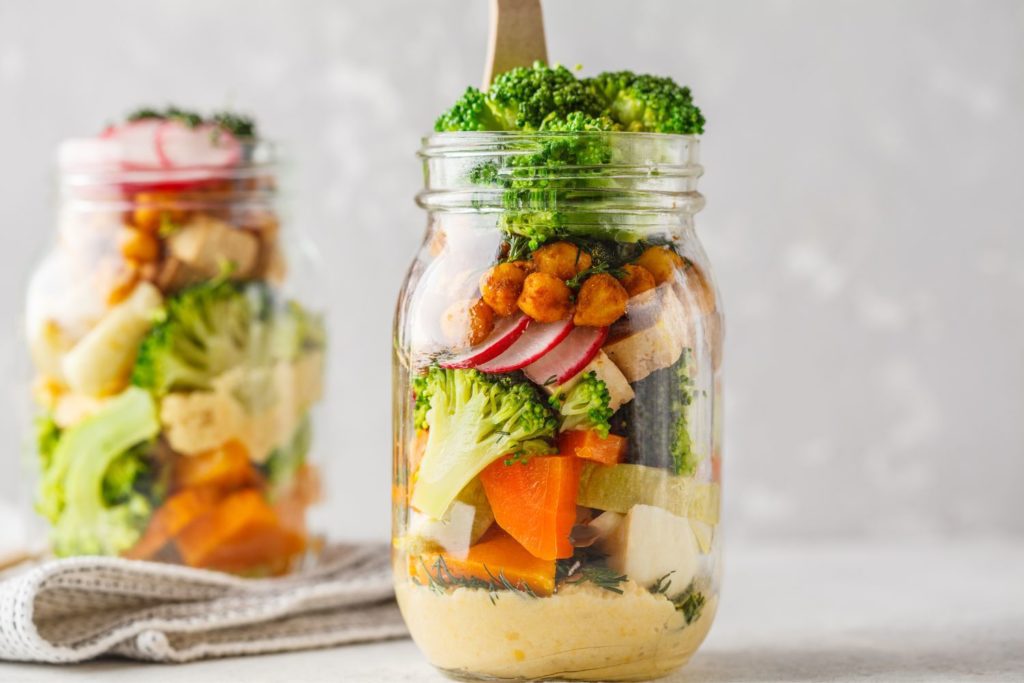Are you new to vegetarianism or just looking to streamline your vegetarian meal planning? Whether you’re a seasoned plant-based eater or a newbie, this guide is here to make your vegetarian meal planning journey easy, balanced, and delicious.
Switching to a vegetarian diet is a fantastic way to boost your health, reduce your environmental footprint, and explore new flavors and foods. But like any diet, it’s important to plan well to ensure you’re getting all the nutrients you need. Let’s dive in!
Why Vegetarian Meal Planning is Essential
Meal planning, in general, is a game-changer, but it’s especially important for vegetarians. Here are a few reasons why:
- Balanced Nutrition: Ensuring you get all essential nutrients.
- Variety: Including a diverse range of foods to keep meals exciting.
- Convenience: Less daily decision-making and more structured eating.
- Budget-Friendly: Helps you save money by reducing food waste and avoiding impulse buys.
Step 1: Understand Essential Nutrients
A balanced vegetarian diet should include a variety of nutrients to keep you healthy and energized. Here are some key nutrients to focus on:
- Protein: Essential for muscle repair and growth. Sources include beans, lentils, tofu, tempeh, seitan, and quinoa.
- Iron: Important for blood health. Found in lentils, chickpeas, spinach, and fortified cereals. Pair with vitamin C-rich foods for better absorption.
- Calcium: Crucial for bone health. Sources include fortified plant milks, tofu, almonds, and leafy greens.
- Vitamin B12: Important for nerve function and energy. Found in fortified foods like plant milks, nutritional yeast, and supplements.
- Omega-3 Fatty Acids: Good for heart health. Found in flaxseeds, chia seeds, walnuts, and algae supplements.
- Vitamin D: Supports bone health and immune function. Found in fortified foods and from sunlight exposure.
- Zinc: Important for immune function. Found in beans, nuts, seeds, and whole grains.
Step 2: Plan Your Meals
The key to successful vegetarian meal planning is to include a variety of foods and make sure each meal is balanced. Here are some tips:
- Mix and Match: Combine different protein sources, grains, and veggies to keep things interesting.
- Batch Cooking: Prepare large batches of staples like grains, beans, and roasted veggies to use throughout the week.
- Themed Days: Have themed meal days like Meatless Monday, Taco Tuesday, and Stir-Fry Friday.

Sample Menu
To get you started, here’s a sample menu that includes breakfast, lunch, dinner, and snacks for a day:
Breakfast: Berry Smoothie Bowl
- 1 cup mixed berries
- 1 banana
- 1 cup spinach
- 1 tbsp chia seeds
- 1 cup plant milk
- Toppings: granola, sliced almonds, fresh berries
Lunch: Quinoa and Black Bean Salad
- 1 cup cooked quinoa
- 1 cup black beans
- 1 cup chopped bell peppers
- 1/2 cup corn kernels
- 1/4 cup chopped cilantro
- Dressing: lime juice, olive oil, cumin, salt, and pepper
Snack: Hummus and Veggie Sticks
- 1/2 cup hummus
- Carrot sticks, cucumber slices, bell pepper strips
Dinner: Chickpea and Spinach Curry
- 1 can chickpeas, drained and rinsed
- 1 onion, chopped
- 2 cloves garlic, minced
- 1 tbsp curry powder
- 1 can coconut milk
- 2 cups spinach
- Serve with brown rice or naan
Snack: Apple Slices with Almond Butter
- 1 apple, sliced
- 2 tbsp almond butter
Step 3: Create Your Grocery List
Once your meals are planned, create a grocery list. Organize it by sections (produce, dairy alternatives, pantry items, etc.) to make shopping more efficient.
Step 4: Prep Ahead
Meal prepping can save you tons of time during the week. Here are some ideas:
- Chop Veggies: Pre-chop veggies for salads, stir-fries, or snacks.
- Cook Grains and Beans: Cook a big batch of quinoa, brown rice, or lentils.
- Batch Cooking: Make large batches of soups, stews, or casseroles to freeze.
Tips for Successful Vegetarian Meal Planning
- Keep It Simple: Focus on recipes with minimal ingredients and steps.
- Be Realistic: Plan meals you know you’ll have time to cook.
- Use Leftovers: Plan for leftovers to save time and reduce waste.
- Involve the Family: Get input from family members to ensure everyone is happy.
Helpful Resources
Here are some fantastic websites to help you on your vegetarian meal planning journey:
- MinimalistBaker.com: Easy, simple recipes that require 10 ingredients or less.
- OhSheGlows.com: Delicious vegan and vegetarian recipes.
- CookieAndKate.com: Whole foods and vegetarian recipes.
- TheFullHelping.com: Nutrient-dense, plant-based recipes.
- VegetarianTimes.com: A variety of vegetarian recipes and meal planning tips.
Vegetarian meal planning doesn’t have to be complicated or time-consuming. With a little bit of planning and some smart strategies, you can enjoy nutritious, balanced meals without the stress. Remember, the key is to keep things simple, use versatile ingredients, and make the most of your time.

